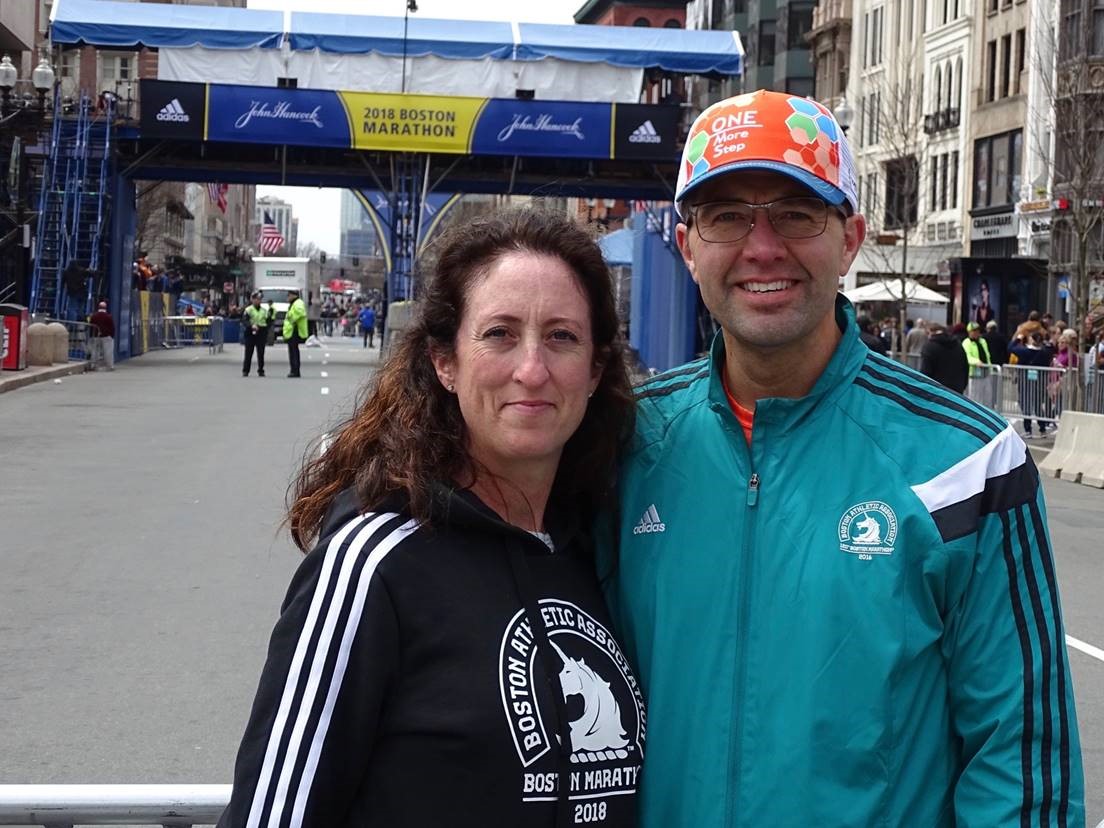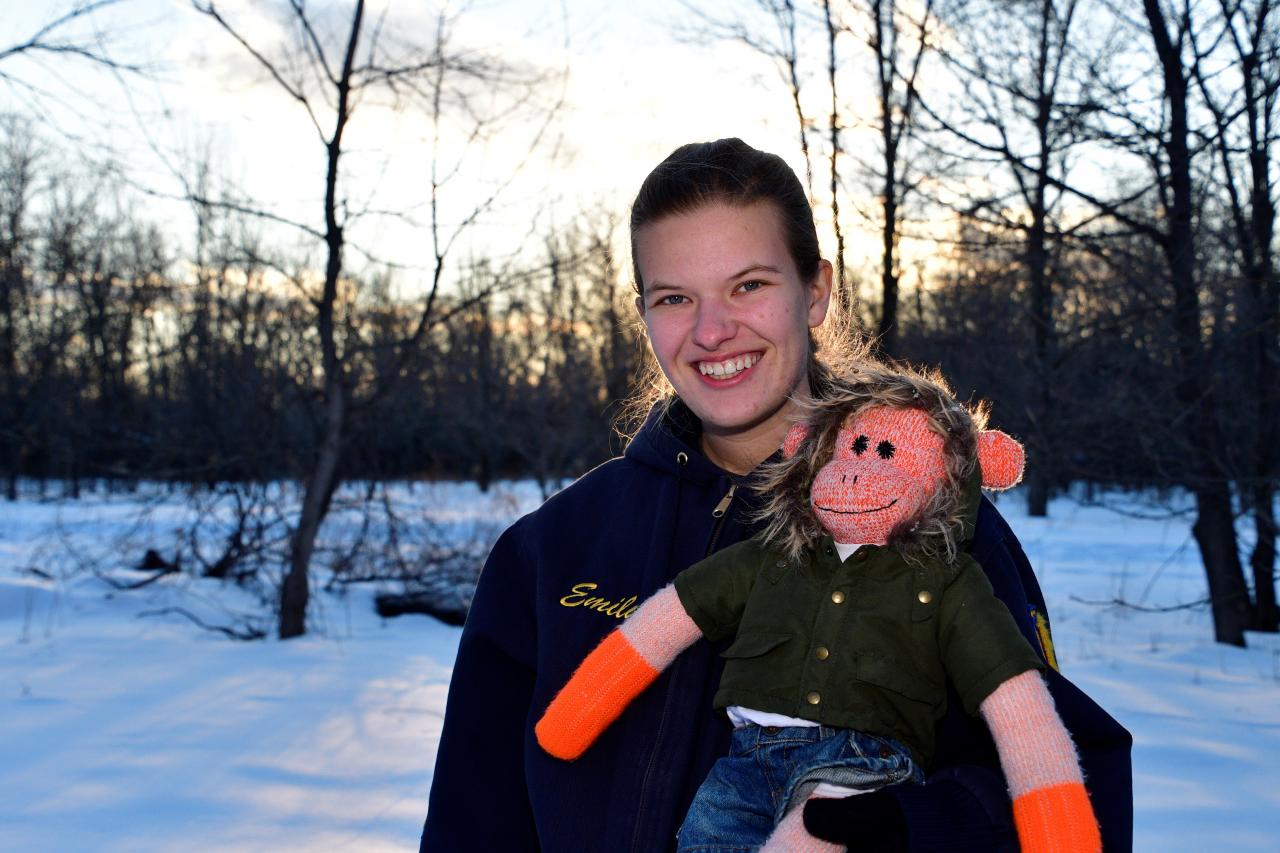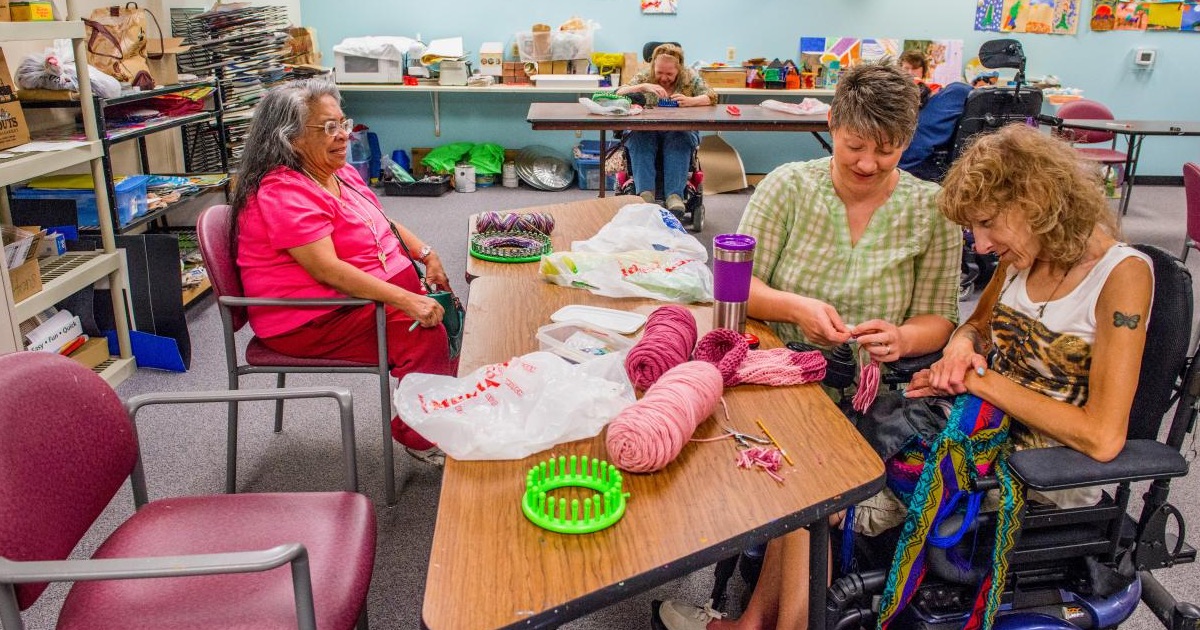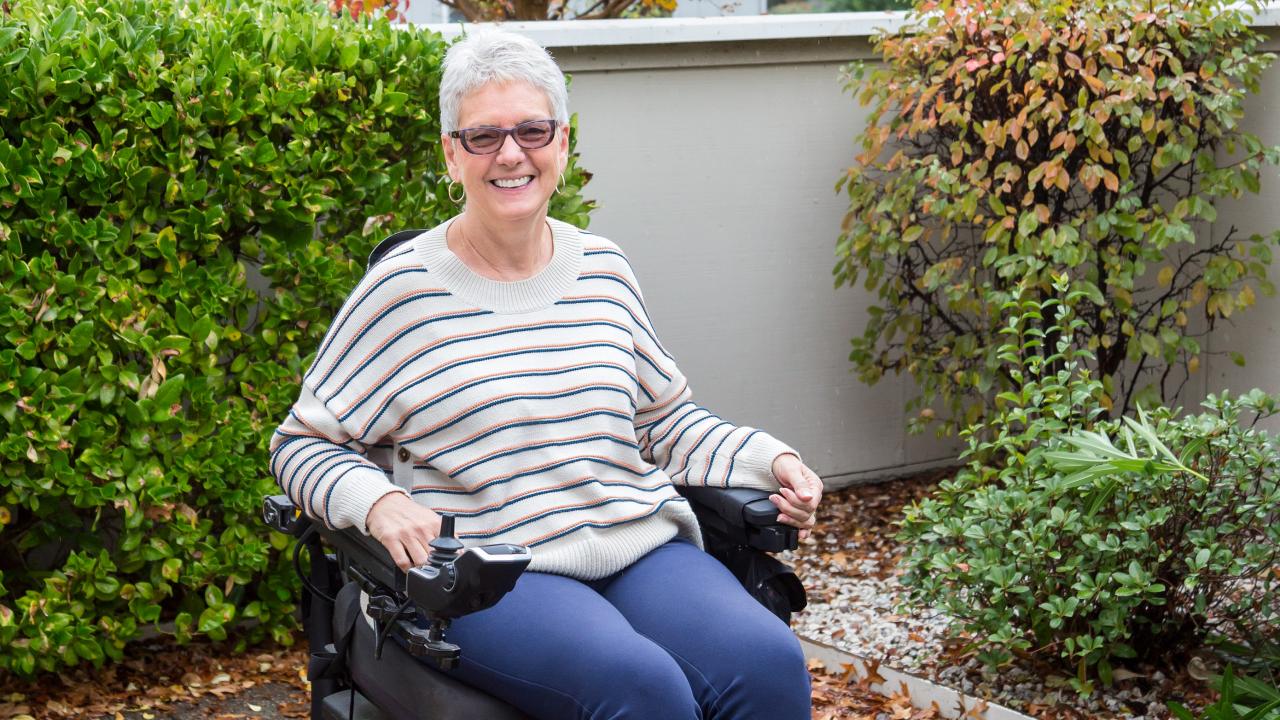
In April, 43-year-old John Platt ran the Boston Marathon. Three weeks later, he will do it all again in Pittsburgh. Like every other athlete in these races, he trained for this, but unlike many of the other runners, John has also trained to run with numbness and spasticity in his legs and prepared himself to lose his vision at some point along the course.
That’s because the self-described “chronically progressive” athlete is living with multiple sclerosis (MS). Most days, he can be found running the roads and trails of Western Pennsylvania, but it’s certainly not easy. John fights hard, and he lives to make the impossible possible.
A Slow Start
In 2003, John was watching the Daytona 500 when something went wrong – his world literally started to spin as he experienced vertigo, a common symptom of MS. During a drive the next day, he realized he couldn’t see out of his left eye. After 18 months of doctor appointments and tests, John received a diagnosis of MS.
His symptoms eventually forced him to quit his job, and he became isolated, frustrated and depressed.
Then inspiration struck, as he was watching a weight-loss TV show that featured a disabled participant. John knew that, despite his balance issues and his need for a cane, he wanted to try something different. He dusted off an old treadmill in his basement, and though he was stiff and walking was difficult, John walked a mile in 30 minutes.
The next day he walked a little farther, and the following day, still farther. He never missed a day. “As my MS was chronically progressing, I decided I would chronically progress every day on the treadmill,” John said.
From Frustration to Marathons
Shortly after John began his journey, he found himself walking outside on a cool day. He left behind his cane and walked unassisted for about a mile.
John progressed gradually to walking six, 10 and 13 miles. He then set a lofty goal: he would walk a total of 26.2 miles each week for 52 weeks (more than 1,362 miles total). He did it, using his challenge to raise funds and awareness for the National Multiple Sclerosis Society.
After walking a full marathon distance in 2014, as part of Pittsburgh’s annual MS walk, John decided to try running. John ran his first marathon in Chicago that same year, the following year in New York and Boston in 2016. He used his races to raise money for MS programs and research.
Taking Advantage of Adaptive Sports
Not everyone can run a marathon, and John knows that. He emphasizes that without adaptive sports equipment, his own marathon-running would not be possible.Adaptive sports are sports played by people with a disability. They may use special equipment and allow for modification so that people with physical or intellectual challenges can participate. Adaptive sporting can include anything from skiing and yoga to volleyball and archery and, of course, running.
As MS symptoms can vary from person to person and be unpredictable at times, sports adaptations must be individualized as well. For example, John has vertigo and can’t move his head when he runs; he stares downward and must rely solely on visual cues. He works with a therapist on visualization techniques and has learned to focus on every step.
To get his muscles to move correctly, John works with physical therapists and strength coaches who oversee his training. He uses anti-gravity treadmills to increase efficiency and training balls for one-legged exercises to improve balance. In addition, “recovery and rest after exercise is huge,” said John.
He also knows he might have to deal with Uhthoff’s syndrome (temporary blindness caused by overheating), so he is accompanied by guides for safety and help navigating aid stations in every marathon he runs.
Getting Started as a Non-Marathon Runner
John suggests doing whatever is possible for you. “If you’re in a wheelchair, move your arms. Use whatever you have to work with. What matters is that you move it. Life is about moving and growing.”
There are “active MS’ers” in every city, and John suggested a simple web search to find them. He also recommended using GatherMS.com, a website that brings together resources related to life with MS and where you can find services like Achilles International, an organization for physically-challenged athletes.
More than that, John wants everyone to know that there are people with MS who have accomplished “all kinds of amazing things! They climb mountains, they play sports, and in fact, I know a double amputee with heart-related issues who runs marathons.”
Next Up: Boston & Pittsburgh
This year, John took on both the Boston marathon (and soon Pittsburgh) with several guides, including his wife and his neurologist.
On race day, his guides ensured he received help navigating crowds so he could focus on his legs and avoid falling. They also allowed him to check in and out of medical tents without having to stop for ice himself when he overheated – they had it ready for him when he needed it.
John emphasized the old adage: where there’s a will, there’s a way. “If you really want to do something, you’ll find your solution.”
Read more in Living with Multiple Sclerosis

.png)

